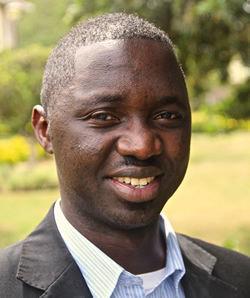
Finding Perspective on Funding and Capacity for Refugees and IDPs
Alex Rohlwing | November 23, 2015
Responding To: Head of U.N. Refugee Agency Calls for Greater Multilateral Cooperation on Migration
António Guterres
Excerpted from the UN High Commissioner for Refugees’ lecture “Present and Future Challenges of Global Forced Displacement,” delivered at Georgetown on October 28, 2015.
There has been an acceptance about the need for global governance of financial markets and for markets related to trade, services, and goods. But there has been a rejection of any attempt to create a global governance system for migration.
Migration has always been considered an intergovernmental issue and never a multilateral issue. There is a forum, but the forum is strictly intergovernmental. There has been opposition by a majority of political leaders to any kind of international regulation of the migration phenomenon. This is a very serious question that needs to be seriously addressed.
I'm strongly in favor of making the International Organization for Migration join the UN. This is not always popular, but I think it would be important. It would also be important to give the same organization some regulatory capacity that today is totally lacking. We have forms of regional cooperation in relation to migration, even areas of free movement of people like the European Union – again, there will be some question marks at the present moment – but a multilateral approach to migration is one of the key questions of global governance that we are facing today.
The paradox is that exactly in a moment in which there are a lot of obstacles facing the way people move, we have more and more people who are forced to move against their will. We are witnessing a dramatic increase of forced displacement. In 2010, conflict was displacing 11,000 people per day. In 2011, 14,000. In 2012, 23,000. In 2013, 32,000. Last year, 42,500 people displaced by conflict per day. Thus, in five years, a multiplication by four. This shows that we are witnessing an equivalent multiplication in the intensity of conflict around the world, where new conflicts emerge without being predicted and where old conflicts go on and on for decades without a solution.
We have reached, since last year, a level of forced displacement by conflict unparalleled since the end of the Second World War. I'm talking about forced displacement by conflict, which of course is very much in line with my own efforts as head of the UN Refugee Agency, but there are other sources of forced displacement. For those that are victims of persecution or conflict, there is a recognition that they are refugees, and should be treated as such. There is a multilateral framework, international law to support them. There is an institution like ours that is supposed to try to monitor to make sure that things go in the right direction.
But things start to be much less clear when people are forced to flee for other reasons. Climate change is probably the determinant reason –the greatest accelerator of other contributions to forced displacement. Climate change, together with population growth and chaotic urbanization in some parts of the world – with food, energy, and water scarcity in other parts of the world – is enhancing the impact of each of these factors, and forcing more and more people to move because life is no longer sustainable in several areas of the world.
In a university like Georgetown that has given very important contributions to the global discussion on migration and displacement, my challenge is to join efforts with other areas of the civil society, of academia, and areas in government that are interested in making things move – and to try to advocate in the direction that I believe is the right direction – to move towards a system of multilateral nature of the movement of people, of recognition of the global labor markets, and of creating the conditions of migration to be respected and considered everywhere as part of the solution of today's world problems and not another problem of today's world.
António Guterres is the former United Nations high commissioner for refugees.

Alex Rohlwing | November 23, 2015

Emmanuel Foro | November 23, 2015

Lina Zdruli | November 23, 2015

Patrice Ndayisenga | November 23, 2015

Patrick Griffith and Jennifer Podkul | November 23, 2015

Susan Martin | November 23, 2015

Tobias Vestner | November 23, 2015